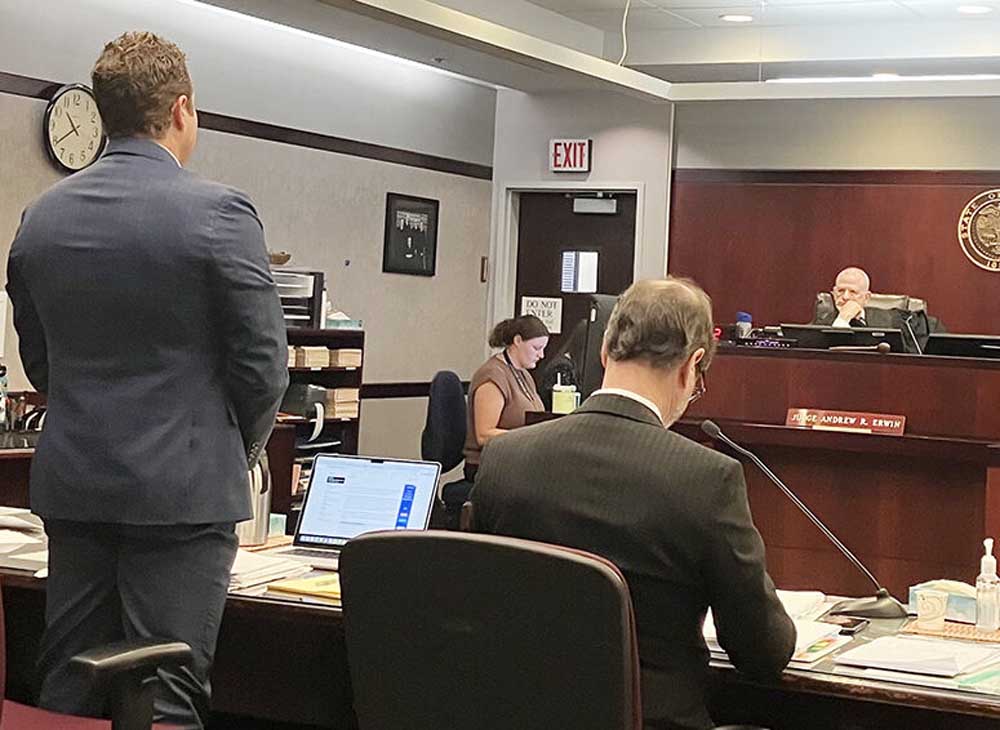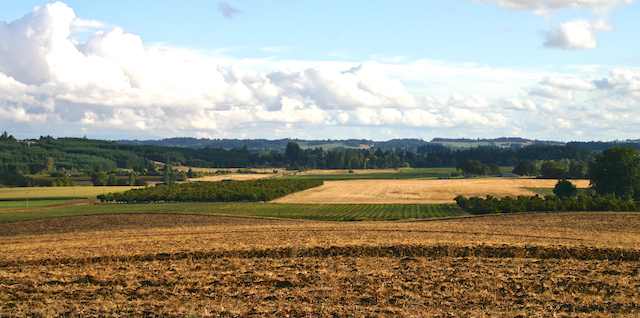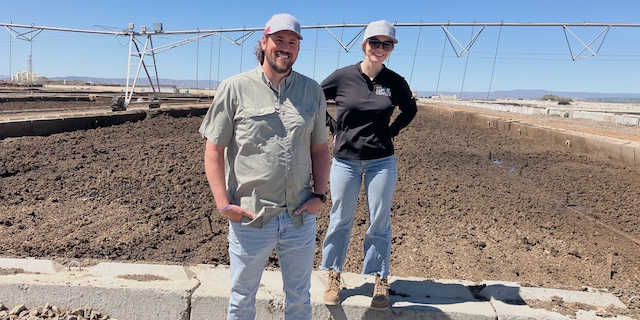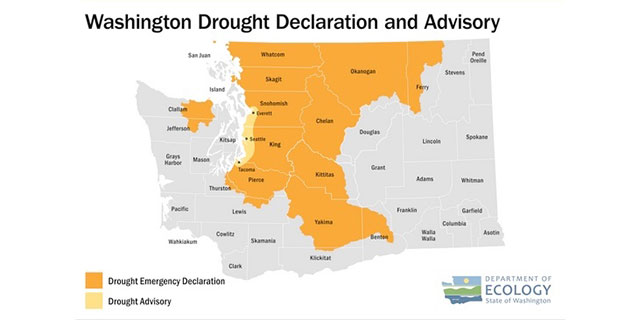North Plains arguments focus on Oregon land use implications
Published 12:21 pm Monday, August 12, 2024

- Washington County Circuit Judge Andrew Erwin hears oral arguments Aug. 12 in Hillsboro, Ore., over expansion of the city of North Plains. The case is expected to have statewide land use implications.
HILLSBORO, Ore. — In the legal battle over a small Oregon town’s expansion, both sides are asking a judge to issue a ruling with big implications for statewide land use law.
On Aug. 12, Washington County Circuit Judge Andrew Erwin heard oral arguments in a lawsuit that pertains specifically to the city of North Plains.
However, the case is ultimately expected to decide whether Oregon voters can override municipal “urban growth boundary” expansions statewide.
“We all know this is going up to the Court of Appeals,” Erwin said during the arguments, held at the county courthouse in Hillsboro, Ore.
Last year, the city council of North Plains decided to double its UGB, prompting opponents to organize a referendum.
Three months ago, more than 70% of voters rejected the enlarged boundaries for North Plains, which currently has a population of 3,400 but expects to attract more residents and businesses in the years to come.
Now, the city is urging Erwin to invalidate that ballot initiative, arguing that state law prohibits all such elections over UGB additions.
Allowing such ballot initiatives would subvert the UGB expansion process not only in North Plains but statewide, said Christopher Crean, the city’s attorney.
Additions to the boundary are meant to be reviewed by the state’s Land Conservation and Development Commission, not by voters, Crean said.
“By allowing these to be referred, you are taking LCDC out of the picture,” he said.
Crean said North Plains still considered feedback from residents through 26 public meetings as well as input from citizen committees, which prompted a question from the judge.
“How did the elections come out so skewed?” Erwin asked.
Crean said the city was required by state law to undertake population growth and economic opportunity analyses during the UGB process, which would be difficult to accomplish at the ballot box.
“This is homework. Elections are visceral,” he said.
Whether the referendum was lawful will depend on whether the UGB decision is considered legislative or administrative — a central legal question in the case.
The difference between legislative and administrative decisions hinges on whether they make new law or simply implement existing law.
In this case, North Plains claims its UGB ordinance applied a “completed legislative plan” that directs how cities must implement UGB expansions, meaning the decision is an administrative function.
“Urban growth boundaries are heavily regulated by the state,” he said. “This is pre-existing policy the city is obligated to follow.”
Under state land use goals, cities must ensure their UGBs are large enough to provide a 20-year supply of buildable land and allow for economic development, based on population projections, he said.
“You can’t just ignore the land use planning goals,” he said.
Expanding the UGB requires complying with “a vast forest of rules” to comply with state land use goals, Crean said. “The city has to comply with those rules. The voters do not.”
Meanwhile, critics of the UGB expansion want the judge to declare the referendum valid and rule that lawmakers violated the state constitution earlier this year by outlawing such ballot initiatives under House Bill 4026.
Friends of North Plains Smart Growth, a nonprofit that opposes the city’s 855-acre expansion onto farmland, claims the bill unlawfully limits the right to referendum, which cannot be accomplished with legislation but instead requires revising the Oregon Constitution.
If UGB decisions can be referred to the ballot, the judge wondered whether it would create “chaos” to have voters decide to move each boundary two feet in one direction or the other.
“Wouldn’t that be a nightmare statewide?” Erwin asked.
Ken Dobson, an attorney for opponents of the UGB expansion, said the city’s ordinance involves a large swath of land with disparate owners, which makes it a legislative action subject to referendum.
“You have to look at the decision as a whole,” he said.
Ordinances with such far-reaching impacts aren’t “administrative” city actions, such as renaming streets, setting employee salaries or other “routine day-to-day matters,” which cannot be referred to voters, according to critics of the UGB decision.
Cities with fewer than 10,000 residents, such as North Plains, are not required by state law to undertake the UGB expansion process, Dobson said. Because it’s an optional policy, it’s subject to referendum.
“There was nothing compelling that decision,” he said. “It was entirely legislative.”
Decisions about how much land to add to the UGB and where those boundaries should be located are also legislative, Dobson said.
“They have broad discretion in crafting what that looks like,” he said.






